Sleep
If you’re living with pain and struggling with sleep then you’re not alone. It’s very common for people with persistent pain to have difficulties getting to sleep or staying asleep.
Recent research shows that by adjusting what you do during the day, as well as night, it is possible to achieve a healthier sleep pattern . . .
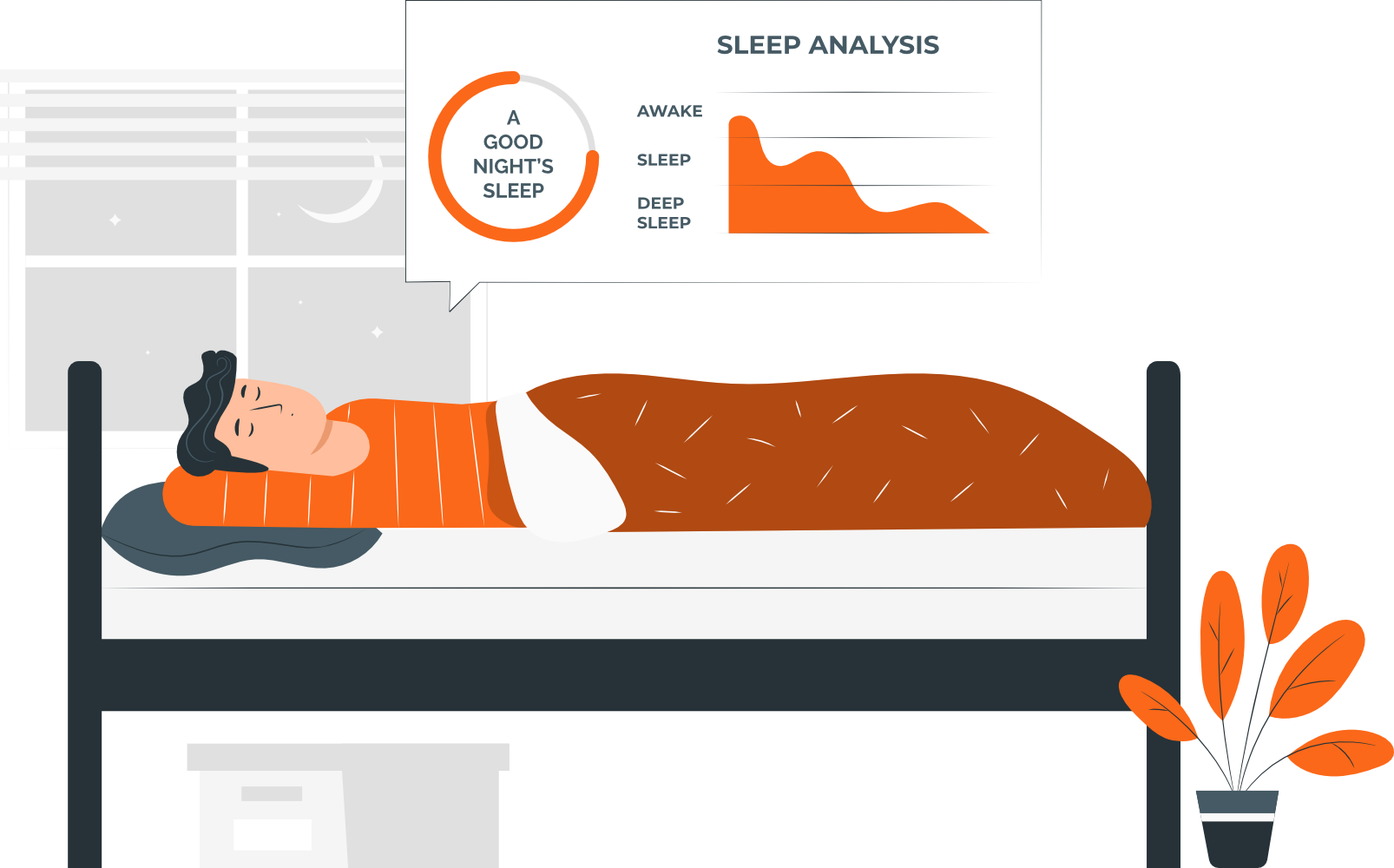
Why can’t I sleep?
It’s likely that there are a number of causes of your sleep difficulties. Here are six triggers often found by people living with pain:
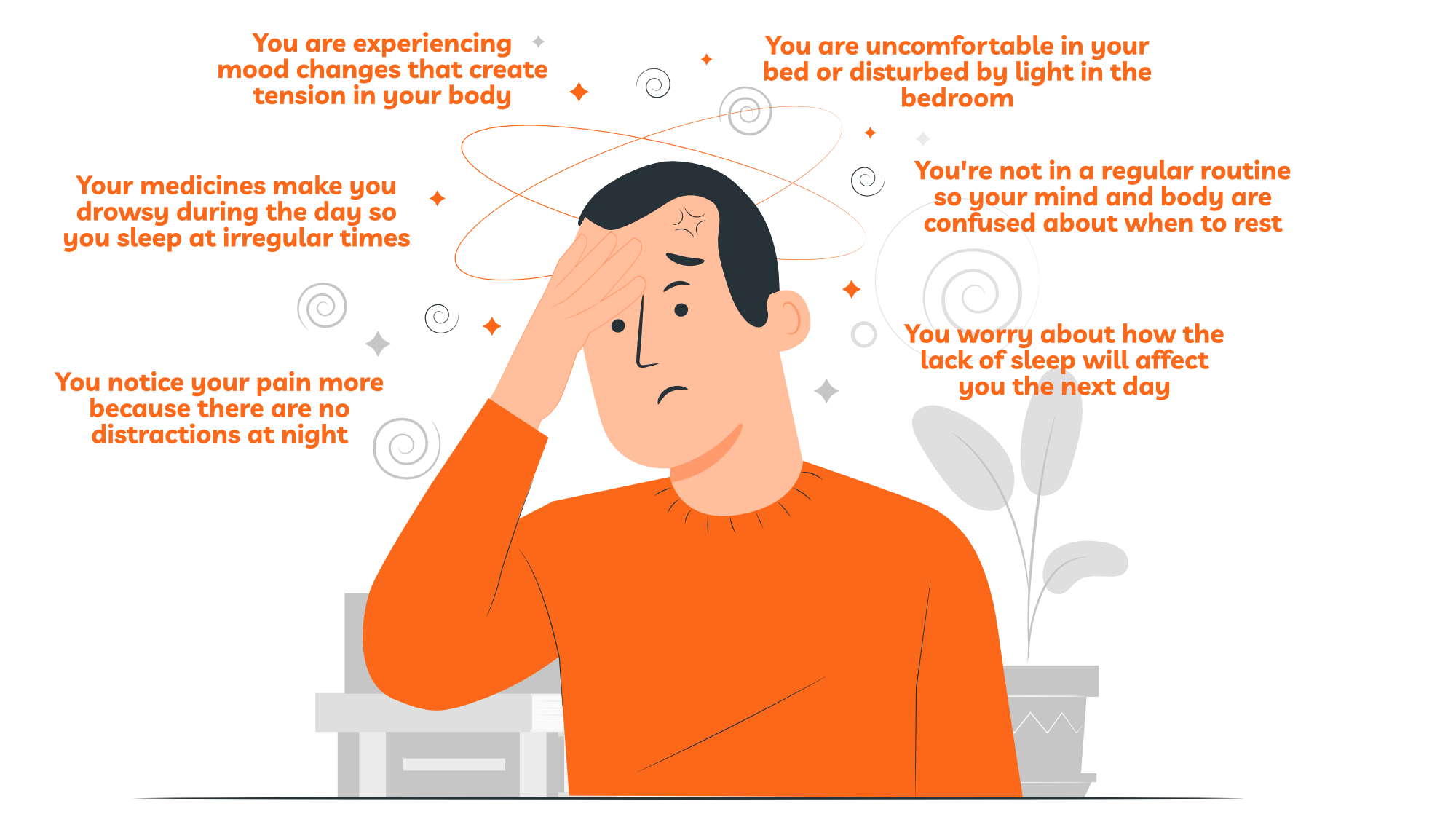
It’s a vicious cycle
You have probably discovered that poor sleep can have some unhelpful effects on your day-to-day life. After a broken night’s sleep you may find:
-
it’s harder to concentrate
-
you are short tempered with other people
-
your mood is low
This is especially true for people living with pain, who often report that poor sleep actually increases their pain.
They can find themselves in a vicious cycle where pain makes sleeping difficult, and poor sleep makes the pain worse.
The really good news is that there are lots of changes you can make to help you to sleep well.
Mythbuster: how much sleep do you need?
It’s a myth that we all need 8 hours sleep – this is just an average. A ‘normal’ night’s sleep can be anywhere between 5 and 10 hours, and we all need different amounts.
We need less sleep as we get older: around 6 to 6 1⁄2 hours is a typical sleep time.
It’s also possible to get too much sleep – sleeping more than you need can make moving difficult when you wake up.
Making changes to break the cycle
There are five main areas where simple changes can make a huge difference:
1. Your daily routines
2. Your activity levels
3. Your food and drink choices
4. Your night-time routines
5. Helping mind and body to rest
Before we look at these in detail, it’s useful to know a bit about how sleep is controlled by your body. Two systems in your body are important: your body clock and your sleep drive.
What is your body clock?
Your body clock is a 24-hour internal clock that helps your body to be alert or sleepy at different times of the day or night. Your body clock needs to be ‘set’ regularly. The things that help to set your body clock are sunlight and daily activities. If you spend a lot of time resting indoors because of your pain, then your body clock can get confused.
What is your sleep drive?
Your sleep drive is at its lowest when you first wake up. It then increases as you spend more and more hours awake. Eventually, after you have been awake for a long period (usually around 16 hours) you will have a strong need for sleep.
Think of them as your friends
Imagine your body clock and sleep drive as your ‘sleep friends.’ They are there to help you to sleep well, so you need to keep them in balance.
Now let’s look at those five areas to find out how . . .
Five changes for better sleep
We’re going to look at five areas of your life and suggest some simple changes that you can make to your activities and routines.
Some you can try out straight away; others may need a bit more thought and planning.
By making changes over a period of five to six weeks you will start to see a real improvement in the quality of your sleep.
Five changes you can make for better sleep
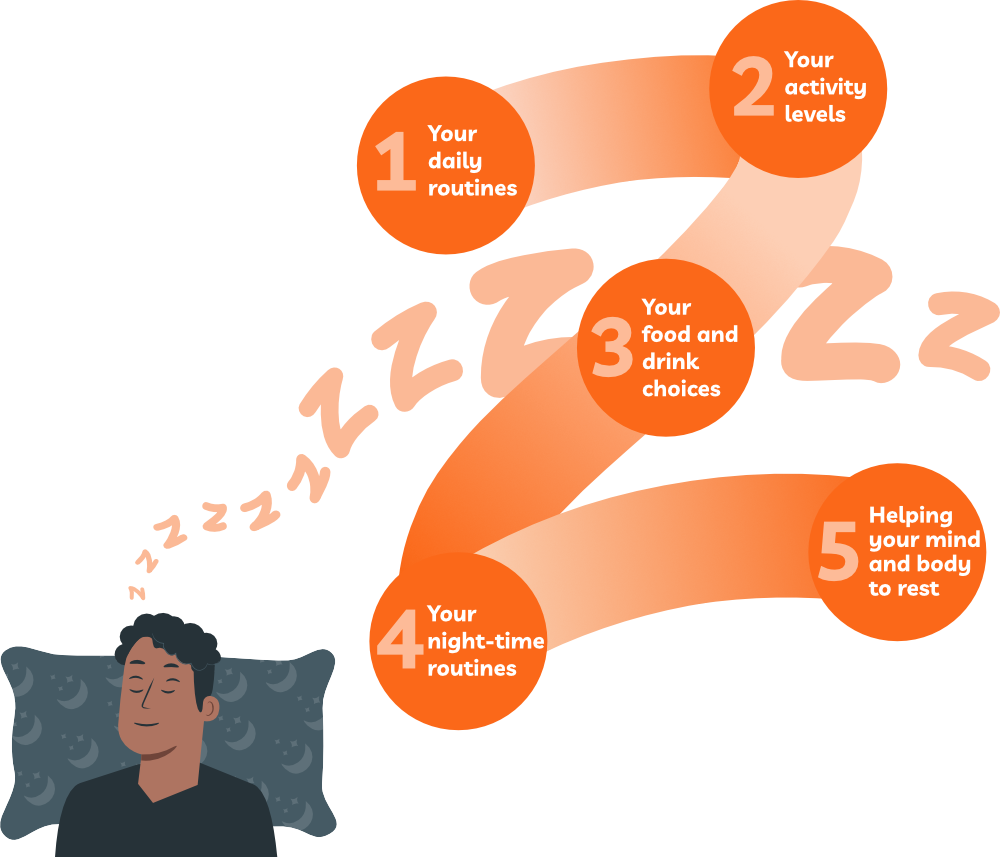
Build your own Sleep Plan
As we’ve seen, some of the changes you’re going to make need a bit of planning.
This handy Sleep Planner will help you plan changes you want to make so you can get a good night’s sleep.
Print it off then fill it in to track the changes you make across all five areas.
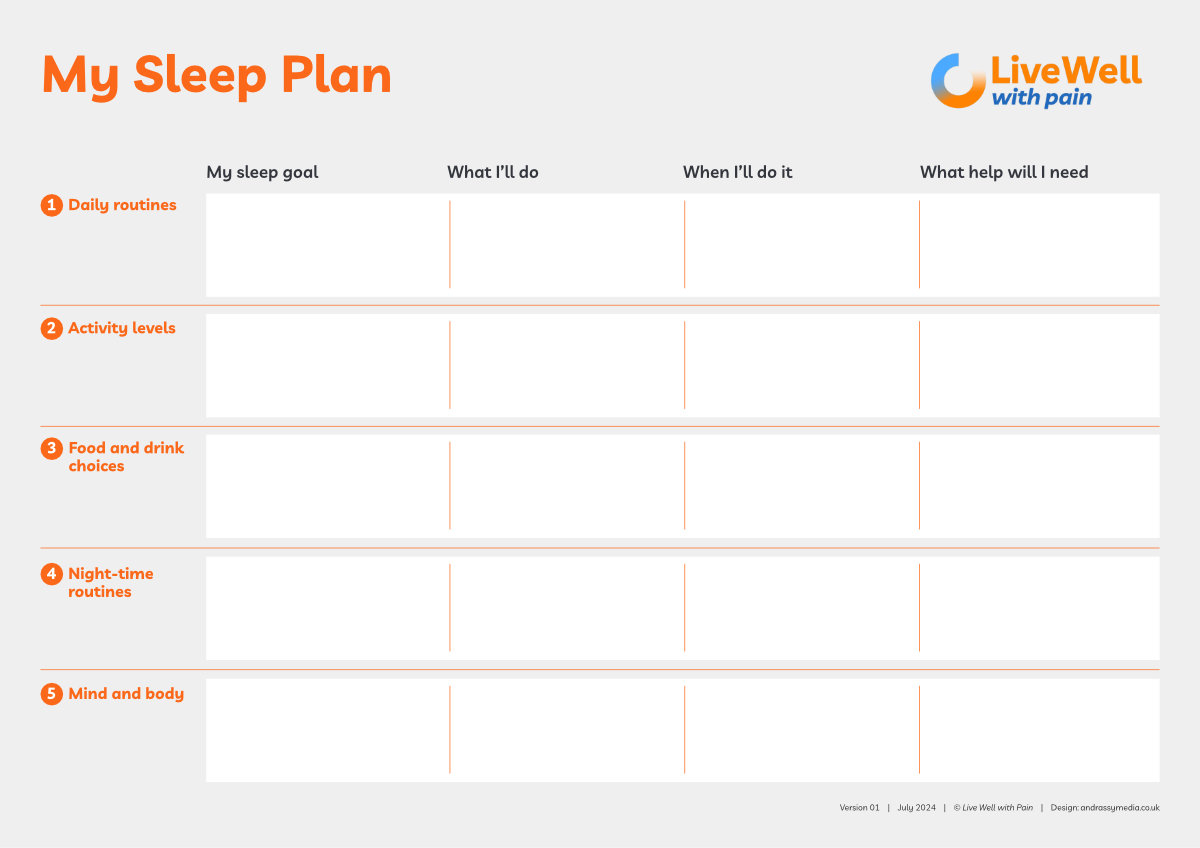
More useful resources
How to Sleep Well with Pain
This great little leaflet from Live Well with Pain is based on the same ideas we explore in Footstep 6, but goes into more detail. Download and print it it here:
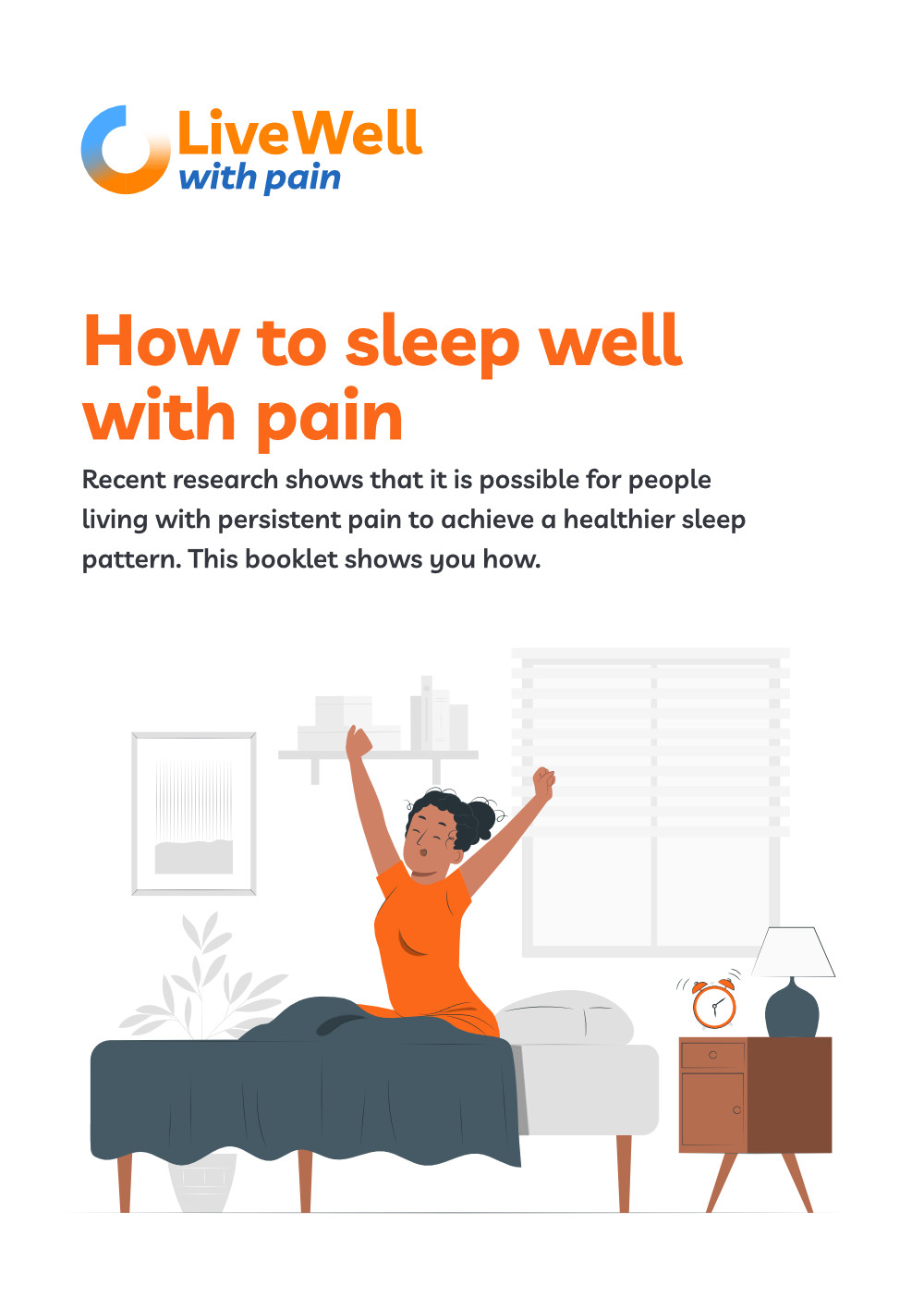
The Sleep Council
The Sleep Council is a national body for sleep health. Its website is full of resources to help you get a good night’s sleep – what to do, what not to do, and where to get more help.
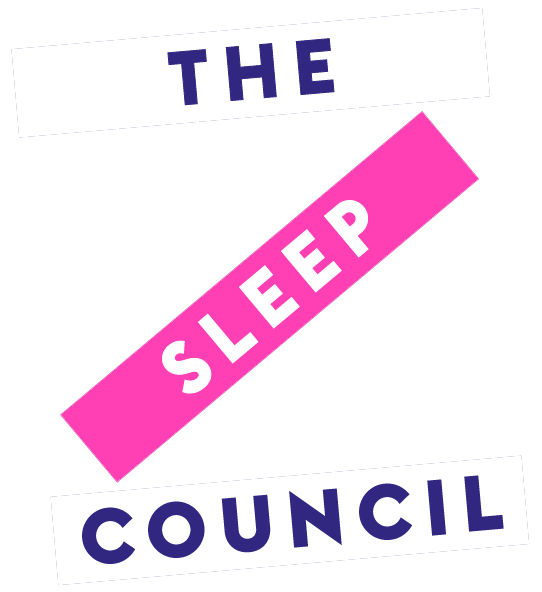
National Sleep Foundation
A useful American website with dozens of articles on all aspects of sleep disorders and solutions to help you sleep.
Getting a good night’s sleep
A leaflet from Pain Concern explaining all aspects of sleep and what we can do to improve it.
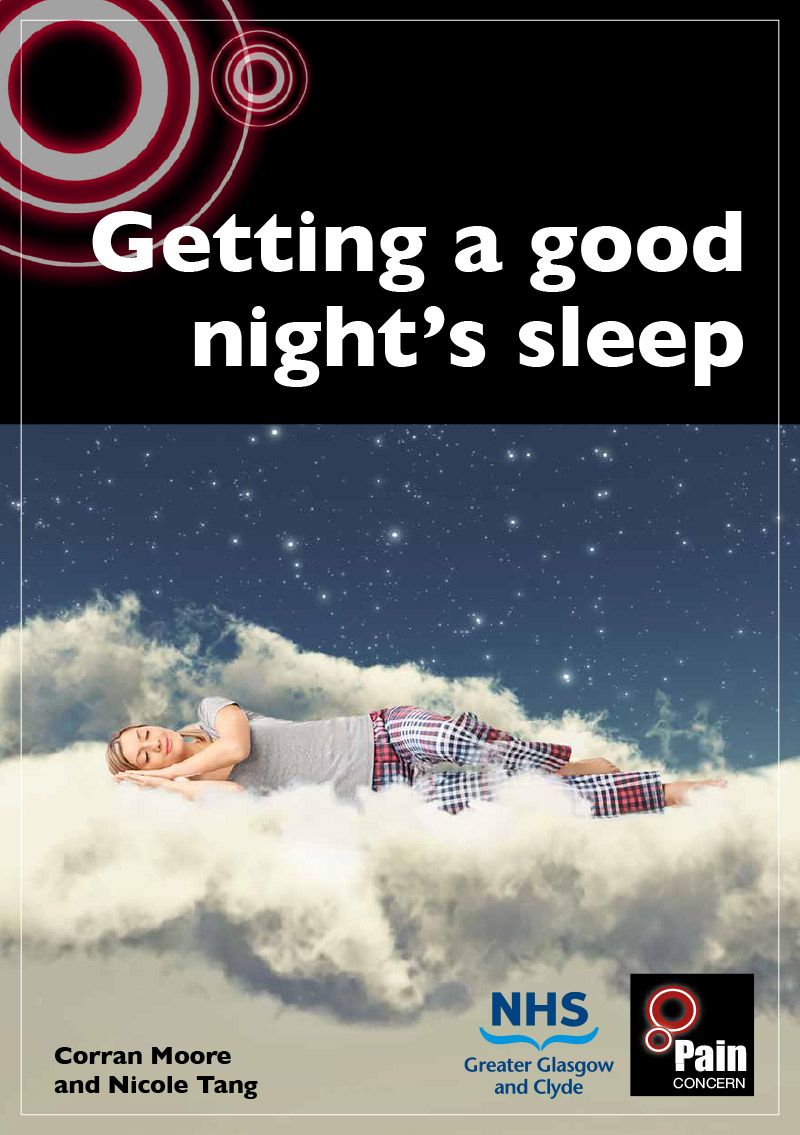
Meditation for sleep
The Headspace website has hundreds of articles for any mind, any mood, any goal, including lots on sleep. Try this audio ‘meditation for sleep’ and read more about the benefits of sleep meditation.

Sleeping problems leaflet
This useful NHS self-help guide has been produced by Northumberland, Tyne and Wear NHS Foundation Trust.
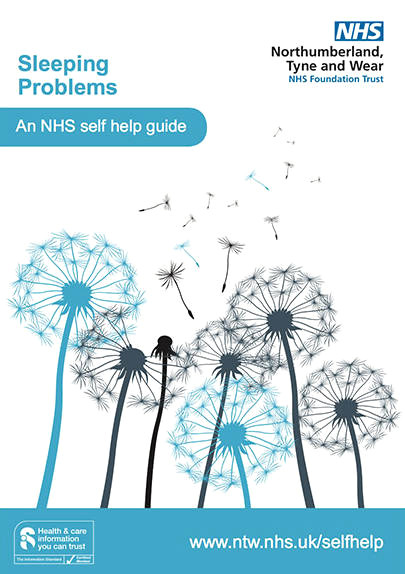
Sleep
Key ideas
✔ Lots of people with pain have difficulties sleeping, but recent research has shown that sleeping well with pain is possible
✔ Making some changes to what you do during the day will help you sleep better
✔ Regular physical activity will help improve your sleep
✔ Your food and drink choices will have an impact too
✔ Getting into a regular night-time routine is important
✔ Making sure that your bedroom is ‘fit for sleep’ can make a big difference